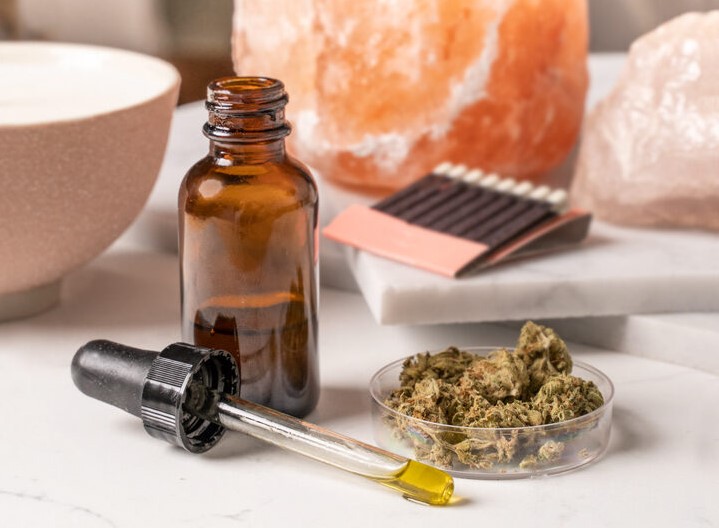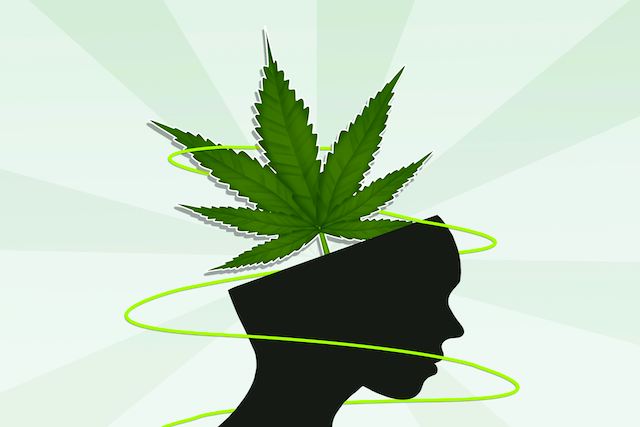Uncategorized
Cannabis And Anxiety
With an increasing number of states legalizing marijuana each year, people are turning to cannabis at a higher rate in hopes that it will assuage their anxiety symptoms, or generalized anxiety disorder (GAD). Although there is still lack of scientific research in this area, many report that marijuana has helped to create a more calming experience which temporarily relieves symptoms of anxiety for them.
Marijuana as Self-Medication
Self-medicating is often used as a way to cope with medical problems or symptoms. This produces an immediate relief of the uncomfortable symptoms, thereby making it more likely for people to continue using this method.
Although self-medication with marijuana is becoming more culturally acceptable, we still do not know enough about its short- and long-term effects for treating particular medical conditions.
Potential Benefits and Risks
Benefits
- May reduce depression in the short term
- May relieve anxiety temporarily
- May reduce stress
Risks
- Higher levels of psychiatric disorders
- Can create psychological dependence
- Long-term memory loss may occur
- Symptoms may increase
- May develop cannabis hyperemesis syndrome
- Can create increased tolerance and need
Benefits
Although more research needs to be done, current studies lean toward supporting short-term benefits of cannabis for anxiety relief.
A study recently published in the Journal of Affective Disorders by scientists at Washington State University found that smoking cannabis can have a temporarily positive effect on self-reported levels of depression, anxiety, and stress. However, unlike other methods used to combat these issues, long-term use of cannabis does not lead to any reduction of symptoms; in fact, it may cause an increase in depression for some individuals.

Risks
Ingesting or smoking marijuana will not only get you high, but it can affect your body in many other ways. The ‘high’ feeling associated with marijuana is caused by tetrahydrocannabinol (THC), which is the chemical compound that gives the plant its psychoactive properties.
THC use comes with certain risks, and 1 studies have shown that long-term or frequent use could result in several side effects.
Higher Levels of Psychiatric Disorders
Although people who smoke marijuana long-term may see some benefits in the short term, they are more likely to experience high levels of depression and symptoms associated with it.
Heavy use of marijuana in adolescence, especially for teenage girls, has been linked to an increased chance of developing depression and anxiety later on. Some people are also more likely to experience psychosis if they use cannabis.
Psychological Dependence
A potential downside to using marijuana as a way to deal with anxiety is that it could lead to psychological dependence on the drug.
Because the effects of marijuana set in quickly, long-term strategies for coping that are based on behavior may seem less helpful initially and thus be less likely to be developed.
Long-Term Memory Loss
Several studies have found that long-term marijuana use can cause memory loss. Memory impairment occurs because THC alters the hippocampus, which is responsible for memory formation. It also has negative consequences on motivation levels.
Increase in Symptoms
If you use too much marijuana, it can make anxiety worse by raising your heart rate. It may also cause fear or paranoia.
Some people who consume marijuana feel faint or lightheaded due to orthostatic hypotension, a sudden drop in blood pressure when standing up. Cannabis can also cause feelings of dizziness, nausea and confusion which may result in anxiety for some individuals.
Cannabis Hyperemesis Syndrome
Cannabis hyperemesis syndrome (CHS) is a rare but potentially serious condition that can occur in people who use marijuana frequently, especially with today’s more potent strains. CHS is characterized by cyclical episodes of nausea and vomiting.
Though it may seem contradictory, marijuana use can actually cause cancer patients to feel nauseous and vomit. While some find temporary respite in hot baths or showers, the only way to permanently cure the problem is quitting marijuana use altogether.
Escalating Need
If you use marijuana on a regular basis, your body may develop a tolerance to it. With time, you will need more of the drug to feel the same “high” sensation that you felt before.
Alternatives to Marijuana
Although a certain level of anxiety is to be expected in frightening situations, when it starts to take over your life and becomes difficult to manage, it’s time seek professional help for other methods of managing anxiety.
Therapy
Without the negative consequences that come with extended marijuana use, proactive coping strategies (learned from counseling, support groups, self-help books, and educational websites) can create lasting change.
A therapist can help get to the root of your anxiety and assist you in managing it more productively. See your doctor so they can put together a treatment plan that is right for you.
In the long term, working with a psychotherapist to deal with your anxiety will provide you more control over your condition.
Medication
Selective serotonin reuptake inhibitors (SSRIs) are firmly established as safe and effective treatments for anxiety disorders, preferred to marijuana because the long-term risks of SSRI use are better studied and potentially less significant. Some anti-anxiety medications are taken daily; others episodically, during periods of extreme anxiety or a panic attack.
A psychiatrist or your primary care doctor can prescribe you an anti-anxiety medication if necessary.
CBD Oil
CBD oil, which is often extracted from marijuana plants and then dispersed under the tongue using a dropper, doesn’t contain THC. Therefore, it won’t have the same mind-altering effects that regular marijuana would. While there is some early evidence to suggest that CBD could potentially be helpful in treating things like anxiety and addiction, more clinical trials and research are needed before any concrete conclusions can be drawn.
Best Cannabis Strains That’ll Melt Away Anxiety
If you’re new to cannabis or have been consuming it for a while, it’s always best to start slowly. Different marijuana strains contain various levels of THC/CBD, and will therefore affect your mind and body in different ways.
If you are struggling with anxiety and want to give cannabis a try, speak with a professional first. If the strain you’re consuming doesn’t feel right, stop using it immediately.
The indica vs. sativa debate is one that has been going on for some time, with no clear answer in sight. However, when it comes to anxiety, there are four strains that seem to work best.
White Widow (Sativa Dominant Marijuana Hybrid)
White Widow has a South Indian indica and a South American sativa as its parents. It is popular in North America but it became well-known when coffee shops in Amsterdam started serving it in the 1990s.
Those new to consuming THC should consider starting with White Widow, which contains 18%-25% of the compound. Its low CBD level of 0.2% means it won’t provide any counteracting effects. patients say it provides a full-bodied but ‘spacey’ high, making it popular for those with anxiety or PTSD. Users often take White Widow to relieve mood disorders and report feeling more euphoric and stimulated after consumption.
Sour OG (Hybrid Marijuana Strain)
Sour OG is a marijuana strain that may help reduce stress and anxiety. Its THC levels are lower than average at 13-17%. This makes it less likely to cause side effects than other strains of marijuana. Sour OG is a balanced hybrid, created by crossing OG Kush with Sour Diesel.
Sour OG is a very popular smoke for medicinal and recreational users alike. Some use it as an afternoon delight due to its ability to relax the user without causing sleepiness. It is also an award-winner; Sour OG received first prize in the ‘hybrid’ category in the 2011 High Times Medical cannabis cup.
Cherry Pie (Indica Dominant Marijuana Hybrid)
This indica dominant marijuana strain is known for promoting creativity and clarity of mind. It is a cross of Durban Poison and Granddaddy Purple, two very popular strains. Cherry Pie lives up to the hype, with THC levels that range from 13% to 23%.
Many people find this indica to be helpful in managing stressful times. Some users report feeling more inspired and creative after taking it. It is also claimed to help with deep relaxation while remaining active and alert, which makes Cherry Pie Perfect for unwinding after a long day without feeling Analyms the next morning.
Grandaddy Purple (Indica Dominant Hybrid)
Ken Estes, based out of San Francisco, is the mastermind behind one of the world’s most beloved marijuana strains- better known as GDP or Granddaddy Purple. A cross between Big Bud and Purple Urkle, this stress-buster is a native to California and wildly popular for those who need relief at the end of a long day.
If you are an experienced cannabis user looking for a strong psychoactive effect, this indica dominant hybrid is the right strain for you. With a THC content of 23%, it will deliver full-body relaxation and a powerful high.
A Word From Verywell
While the long-term effects of marijuana use are unknown, medical professionals have established that symptoms of anxiety can be treated through other means such as therapy and medication. If you’re now trying to self-medicate with marijuana because of anxiety, tell your doctor right away.


